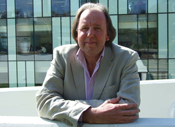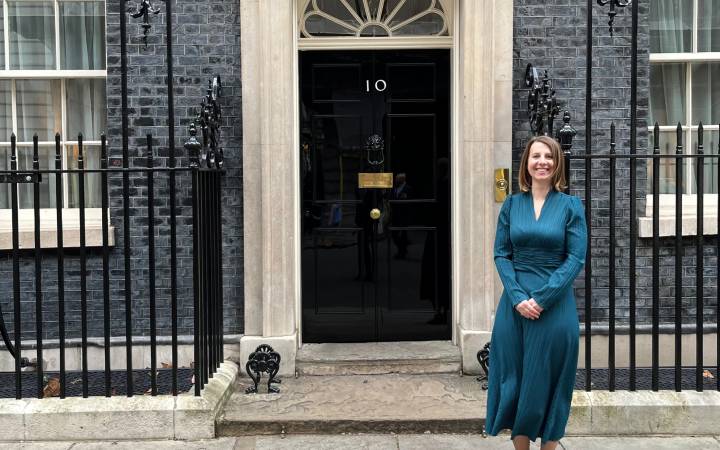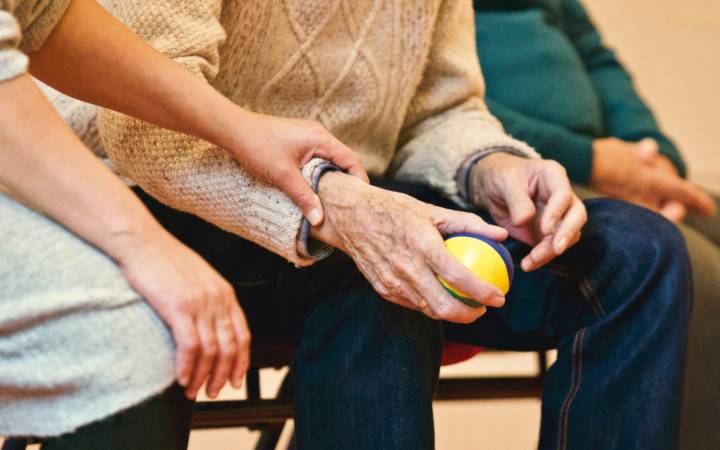Minding the gap: bringing health and social care together
Posted Friday 17 February 2012
 As a senior and top manager for 20 years within local government social services one of my responsibilities was to seek to bridge the gaps between social care services provided by local councils and the services for people with illness and impairment provided by the National Health Service. Too often these services were in conflict and competition leaving disabled and older people to navigate complex and indeed sometimes chaotic local arrangements that varied from place-to-place.
As a senior and top manager for 20 years within local government social services one of my responsibilities was to seek to bridge the gaps between social care services provided by local councils and the services for people with illness and impairment provided by the National Health Service. Too often these services were in conflict and competition leaving disabled and older people to navigate complex and indeed sometimes chaotic local arrangements that varied from place-to-place.
One way forward was to bring health and social care services together and in Wiltshire between 1992 and 2006 that is what we did. By 2002 people with mental health difficulties, people with learning disabilities, and people with physical impairment and older people, each received help from integrated health and social care teams located within their local community and with one manager and budget holder spanning health and social care services within each team.
Was this a good idea? We established a partnership with a local university to track and research the impact and outcomes of our fourteen year journey of integrating services, with research funding from the Department of Health. What was found was that:
- bringing different professionals (eg nurses, social workers, occupational therapists etc) together into one team improved inter-professional understanding and communication.
- it led to easier access to services as measured by more direct self and family referrals rather than referrals passed on by other agencies.
- people got a quicker and more extensive response.
When in 2008 I became a research professor in social work at Kingston University there was an opportunity to continue to contribute to developments in bringing health and social care together.
In 2008 the twice yearly Dorich House directors dinners were initiated. The dinners bring together the directors of children's services, and the directors of adult social services, from the six south-west London boroughs of Croydon, Sutton, Merton, Wandsworth, Richmond and Kingston, and the directors for Surrey, along with senior managers from Kingston University and St George's, University of London, and from the Faculty of Health, Social Care and Education and its School of Social Work. The dinners are now supported by the South West London Academic Health and Social Care System.
A part of the dinner discussion is focussed on policy and practice changes and issues within local agencies which the directors might want to have explored further through research. My role then is to shape the research, seek the research funding, recruit the research team and to ensure the research is completed and has impact.
The directors wanted a study undertaken about what was happening within multi-professional health and social care teams in south-west London. Four teams from four boroughs were recruited for the study, with the sixty four professionals from eight different health and social care professions participating in the study. The four teams were working with working age adults with mental health difficulties, a mental health team working with older people, a team working with people with learning disabilities, and a team working with adults including older people with physical impairments. The study was entitled 'The Definition and Deployment of Differential Professional Core Competencies and Characteristics in Multi-professional Health and Social care Teams'. A catchy title! Funding for the study was awarded by the Academic Health and Social Care Network.
The research team of four (Rick Hood, Robert Grant, Sadiq Bhanbhro and myself) spent six months between January and June 2011 identifying with the professionals, using a research design based on personal construct theory, how they defined their own and each others' core professional competencies and how this then matched, as measured by diary completions, how they actually spent their time. Analysis of variance and factor analysis was then used to identify differences and types between the professions.
Differences ranged, for example, from the amount of time spent in direct work with patients (nurses in the community scored highest), to how much autonomy different professionals were seen to have (psychiatrists, psychologists and community matrons scored well here), to how much time was spent on report writing and recording (social workers and also several health therapy professions scored high).
Three papers have been submitted to academic health and social care journals on the findings and on the methodologies developed, and reports have also been provided to national professional associations and colleges to consider for their profession. But the main feedback and impact has been to the local agencies and teams, allowing and encouraging reflection on how the scarce resource of different competencies across professions are being deployed and how the scarce resource of time is being used. For example, we brought the teams together to consider and firm-up on our initial tentative findings so that they had the opportunity to reflect for themselves but also to fine-tune what lessons we are now sharing more widely.
What was important about this study was that it addressed an issue of local contemporary interest and concern, identified in discussion with local agencies, and with feedback and impact for those agencies whilst also sharing the learning more widely. It was a combination of 'act local; think global'!
Ray Jones is professor of social work in the Faculty of Health, Social Care and Education. A registered social worker, between 1992 and 2006 he was director of social services in Wiltshire, leading a top-ranked organisation which served a population of 650,000 people, had more than 4,000 employees, with a turnover at today's costs of more than £240m, and provided care and protection at any one time for more than 40,000 children, disabled adults and older people.
He was also the first chief executive of the cross-UK Social Care Institute for Excellence and is a former chair of the British Association of Social Workers. He is now the chair of the Safeguarding Children's Boards for two major English cities, has led inquiries following the deaths and killings of children and disabled adults, and is a frequent media commentator and columnist on television, radio and in the print press.
Contact us
- For non-student research enquiries, email the Research Support Office
- Research Support Office contacts
- Graduate Research School contacts
- Business and Enterprise Centre contacts
- How to get to Kingston University



